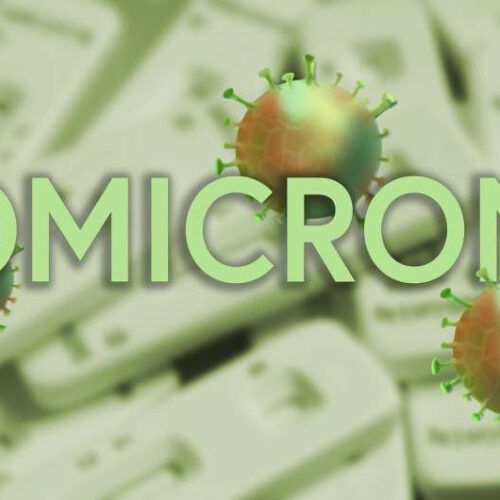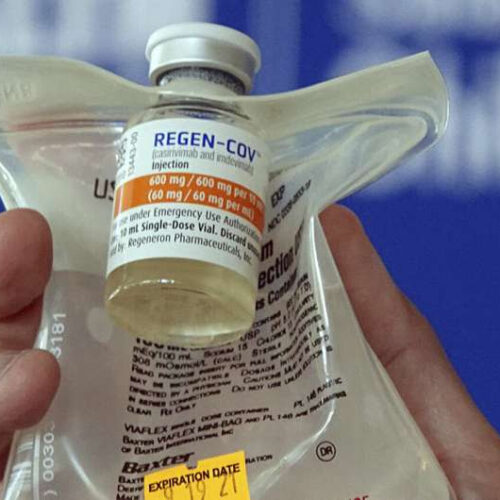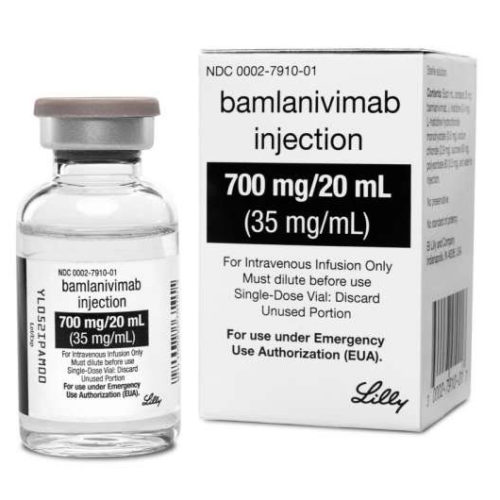by University of Wisconsin-Madison Credit: Pixabay/CC0 Public Domain The drugs behind the new pills to treat COVID-19 remain very effective against the omicron variant of the virus in lab tests, according to a new study. However, lab tests also showed that the available antibody therapies—typically given intravenously in hospitals—are substantially less effective against omicron than against earlier...
Tag: <span>antibody drugs</span>
FDA halts use of antibody drugs that don’t work vs. omicron
by Matthew Perrone A doctor holds a Regeneron monoclonal antibody infusion bag during a news conference Thursday, Aug. 19, 2021 at a hospital in Fort Lauderdale, Fla. On Monday, Jan. 24, 2022, the Food and Drug Administration said COVID-19 antibody drugs from Regeneron and Eli Lilly should no longer be used because they are unlikely...
Studies extend hopes for antibody drugs against COVID-19
by Marilynn Marchione This photo provided by Eli Lilly shows the drug bamlanivimab. On Tuesday, Jan. 26, 2021, the company said that the two-antibody combo of bamlanivimab and etesevimab reduced the risk of hospitalizations or death by 70% in newly diagnosed, non-hospitalized COVID-19 patients at high risk of serious illness because of age or other...
Targeting stem cells: The path to curing poor-prognosis leukaemia
Researchers at Children’s Cancer Institute have discovered what could prove a new and improved way to treat the poor-prognosis blood cancer, acute myeloid leukaemia or AML Researchers at Children’s Cancer Institute have discovered what could prove a new and improved way to treat the poor-prognosis blood cancer, acute myeloid leukaemia or AML. Unlike acute lymphoblastic...
A ‘switch’ that turns autoimmunity drugs into powerful anti-cancer treatments
Scientists from the Antibody and Vaccine group at the University of Southampton have discovered a way to transform antibody drugs previously developed to treat autoimmunity into antibodies with powerful anti-cancer activity through a simple molecular “switch”. This work, published in the journal Cancer Cell, focuses on a molecule called CD40 which is present on the...
Scientists have discovered a new type of depression: Finding will pave the way for new treatments for 30% of patients who do not respond to drugs
Some mice with symptoms respond to drugs that act on ‘feel-good hormones’ Yet such medications have no effect on the mental states of other rodents Thought to be due to animals having different receptor levels for such hormones Findings may lead to new antidepressants that benefit more sufferers Around 7% of adults in the US...
Metal simplifies synthesis of antibody drugs
HOUSTON – (Aug. 24, 2017) – Rice University scientists have developed a method to efficiently modify natural antibodies that can deliver drugs to target cells. Adding a little extra metal is the key. Rice chemist Zachary Ball and graduate student and lead author Jun Ohata discovered that rhodium, a rare transition metal, can be a...



